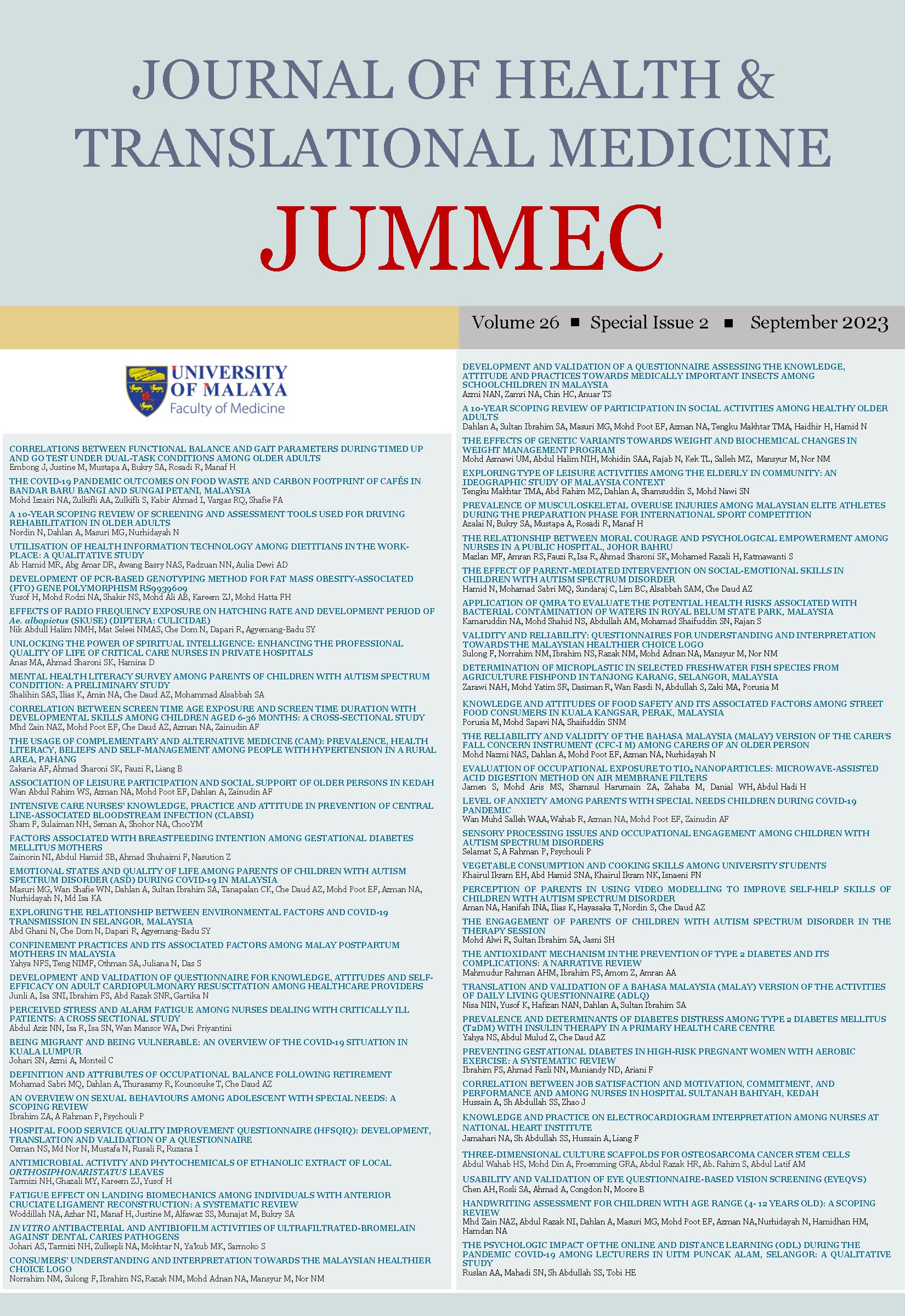THE RELIABILITY AND VALIDITY OF THE BAHASA MALAYSIA (MALAY) VERSION OF THE CARER’S FALL CONCERN INSTRUMENT (CFC-I M) AMONG CARERS OF AN OLDER PERSON
Received 2023-07-12; Accepted 2023-09-20; Published 2023-09-21
DOI:
https://doi.org/10.22452/jummec.sp2023no2.38Abstract
The Carers' Fall Concern Instrument (CFC-I) is a tool used to measure the level of concern caregivers have when caring for older people who may be at risk of falling. However, it has not been determined whether this tool is valid for use among caregivers of elderly persons in Malaysia. Therefore, this study aimed to translate and to establish the psychometric properties of the Malay version of the CFC-I for use among caregivers of elderly persons. The researchers used the "forward-backwards" procedure to translate the CFC-I into Malay and then conducted a pilot study to evaluate the feasibility of the translated version. The study included 86 caregivers of elderly persons who analysed the validity and reliability of the Malay version of the CFC-I. The results indicated that the content validity of the 16-item CFC-I Malay version was excellent, as evidenced by I-CVI and k* values is 1.0. Moreover, experts agreed that the items were relevant, as shown by S-CVI/Ave and S-CVI/UA values of 1.0. Concurrent validity was established by a strong, positive correlation between the total scores of the Malay and original English versions (r = 0.762, p < 0.001). The instrument's internal consistency was also high, with a Cronbach's alpha coefficient of 0.89. Overall, participants rated their understanding of the instructions and questions of the CFC-I Malay version as level 4 or 5 (agree or strongly agree). The mean inter-item correlation was 0.51, ranging from 0.18 to 0.79. In conclusion, the Malay version of the Carers' Fall Concern Instrument is a valid and reliable tool for evaluating the level of fall concern among caregivers of elderly persons in Malaysia. Healthcare professionals can use this instrument to strengthen fall prevention strategies for older people in the country.
Downloads
Downloads
Published
Issue
Section
License
All authors agree that the article, if editorially accepted for publication, shall be licensed under the Creative Commons Attribution License 4.0 to allow others to freely access, copy and use research provided the author is correctly attributed, unless otherwise stated. All articles are available online without charge or other barriers to access. However, anyone wishing to reproduce large quantities of an article (250+) should inform the publisher. Any opinion expressed in the articles are those of the authors and do not reflect that of the University of Malaya, 50603 Kuala Lumpur, Malaysia.


